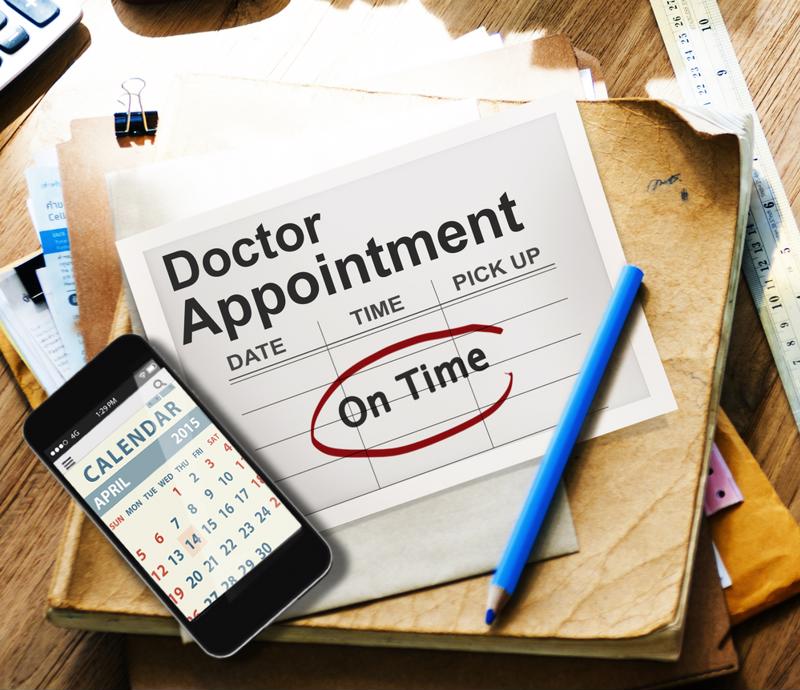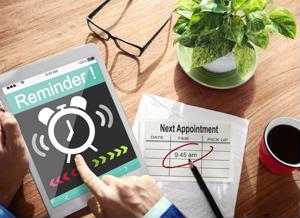

 Even with vast improvements in patient engagement and scheduling methods, no-showscontinue to be a major concern for practices. When a patient fails to arrive for his or her appointment, it has a negative impact on clinical workflow in a variety of ways, especially when it comes to financial losses.
Even with vast improvements in patient engagement and scheduling methods, no-showscontinue to be a major concern for practices. When a patient fails to arrive for his or her appointment, it has a negative impact on clinical workflow in a variety of ways, especially when it comes to financial losses.
What do no-shows cost providers?
A North Carolina-based study looked into the costs of no-shows for health care providers. The researchers created a situational model that applied the average non-attendance rate of 18 percent to a schedule of 24 patients in one day. With perfect attendance, the net gain would have been $4,433.32, but a no-show rate of 18 percent would mean a loss of $725.42, reducing the net gain to $3707.90.
Fortunately, there are many ways that physicians and practices can encourage patients to follow through with their appointments. One of the most effective methods is utilizing appointment reminders.
Using patient appointment reminders to reduce no-shows
As common sense dictates, reminding patients that they have appointments is a good way to encourage them to show up. The positive effect of patient reminders was clinically proven in a University of Pennsylvania School of Medicine study involving 80 patients, half of whom were reminded of their scheduled appointment the following day. The other half received no communication. The results revealed that there was a significant improvement in attendance rates among those who received a reminder call.Calls are a highly effective means of reminding patients, but with advances in technology, there are many more options available to patients. For instance, some may prefer email or text reminders, and an efficient appointment reminder program should send out these alerts automatically the day prior to the appointment according to the patients' preferences.
Nextech provides effective solutions for minimizing the number of no-shows. For example, the patient scheduling software allows users to identify patients whose appointments are unconfirmed and who tend to not show up. Additionally, Nextech offers the NexReminder module, which enhances patient engagement and reduces missed appointments by embracing the technology of smartphones. This system sends a text message reminder to the patient and receives a confirmation from that patient, which goes directly into the scheduling software in real time.
 Nextech's NexReminder allows users to send reminders and receive confirmations via their smartphones.
Nextech's NexReminder allows users to send reminders and receive confirmations via their smartphones.Additional ways to encourage patient attendance
Along with implementing patient appointment reminders, physicians and practices may want to consider the many other ways to reduce no-shows and the financial losses they cause.
For instance, you might encourage patients to pre-pay for their next appointment, which provides a strong incentive to return. Many practices charge patients a small fee for missing an appointment, while others take another route: rewarding patients with a small discount in their bill when they show up on time. It's also important to update contact information when a patient makes an appointment to ensure they receive patient appointment reminders.
Even with all of these suggestions, practices will still encounter missed appointments. In these cases, it's wise to follow up immediately with the patient to reschedule to help make up for the financial loss. Practices can also develop a back-up list of patients who are able to come in on short notice - they may be willing to fill those empty slots created by missed appointments.
While patient no-shows are inevitable, implementing these practices as well as utilizing patient reminders may help drastically reduce non-attendance rates.
HERE ARE SOME RELATED ARTICLES YOU MAY FIND INTERESTING
Practice Management | Patient Engagement | Patient Care
A Practice Owner’s Guide to Navigating Difficult Patient Encounters
By: Nextech | January 12th, 2026
Practice Management | Patient Engagement | EHR | Referrals
A Playbook for Increasing Referrals at Your Specialty Practice
By: Nextech | December 22nd, 2025